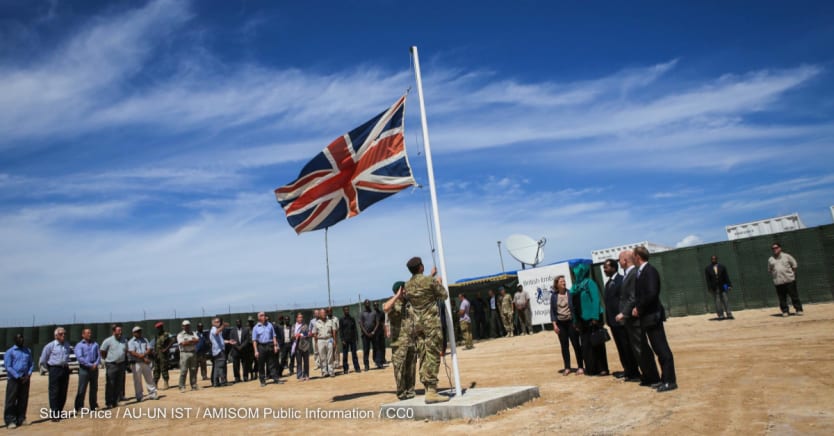
Funding for the United Kingdom government’s specialized conflict prevention work in the Middle East and North Africa has been reduced by £90 million ($121.9 million) in 2021 as a result of the country’s aid budget cuts, according to an analysis by peace-building charity Saferworld.
Advocates: UK Integrated Review spells end of 'development superpower status'
A major government foreign policy review pays relatively little attention to development, raising questions from aid advocates around the country's future in the space.
The Conflict, Stability and Security Fund was estimated by Saferworld last year to have lost £348.9 million due to the U.K. aid cuts, but the new analysis reveals how those cuts were distributed within the cross-government body — though detailed information on which programs were affected remains lacking. The Foreign, Commonwealth & Development Office did not respond to a request for comment.
Alongside the major cut to CSSF programming in MENA, there was a £50 million cut to programming in South Asia and a £19 million cut to programming in Africa. The multilateral strategy was cut by £23 million, according to Saferworld’s analysis.
“In the interests of tackling broader development and security challenges, last year the Integrated Review made tackling and preventing conflict a strategic goal for the UK,” said Lewis Brooks, U.K. policy and advocacy coordinator at Saferworld. “The government needs to keep its money where its mouth is and support this crucial work.” The analysis drew on data released in ministerial statements and CSSF’s annual report.
Alongside CSSF cuts, the U.K. government made deep cuts to countries affected by conflict and fragility, as a result of the decision to reduce the aid budget from 0.7% to 0.5% of gross national income. These were reported to include 60% funding cuts to Somalia and the Democratic Republic of Congo, as well as 90% cuts to Africa’s Sahel region. The government has been criticized for a lack of transparency both about specifics of the cuts to programs and about the decision-making process behind the reductions.
Meanwhile, data for the 2021-2022 financial year showed that aid increased to some new CSSF programs, including “cyber,” which has been allocated £12 million of official development assistance, and efforts to fight serious and organized crime, which received £14.5 million.
Brooks welcomed a £180,000 increase to the Gender, Peace and Security thematic program but added that “the CSSF should be shouting about the contribution its regional programmes make to gender equality and releasing more comprehensive data on this contribution.”
The analysis also revealed a non-ODA cut of £56 million to United Nations peacekeeping contributions.








